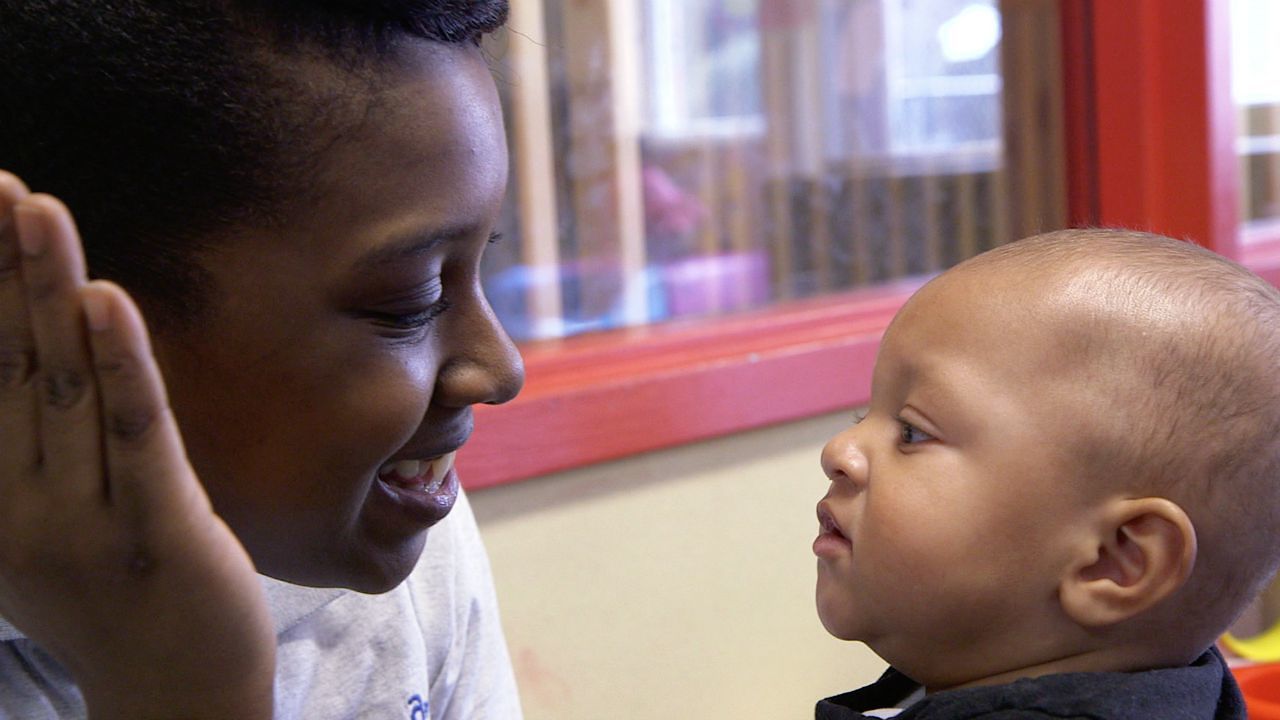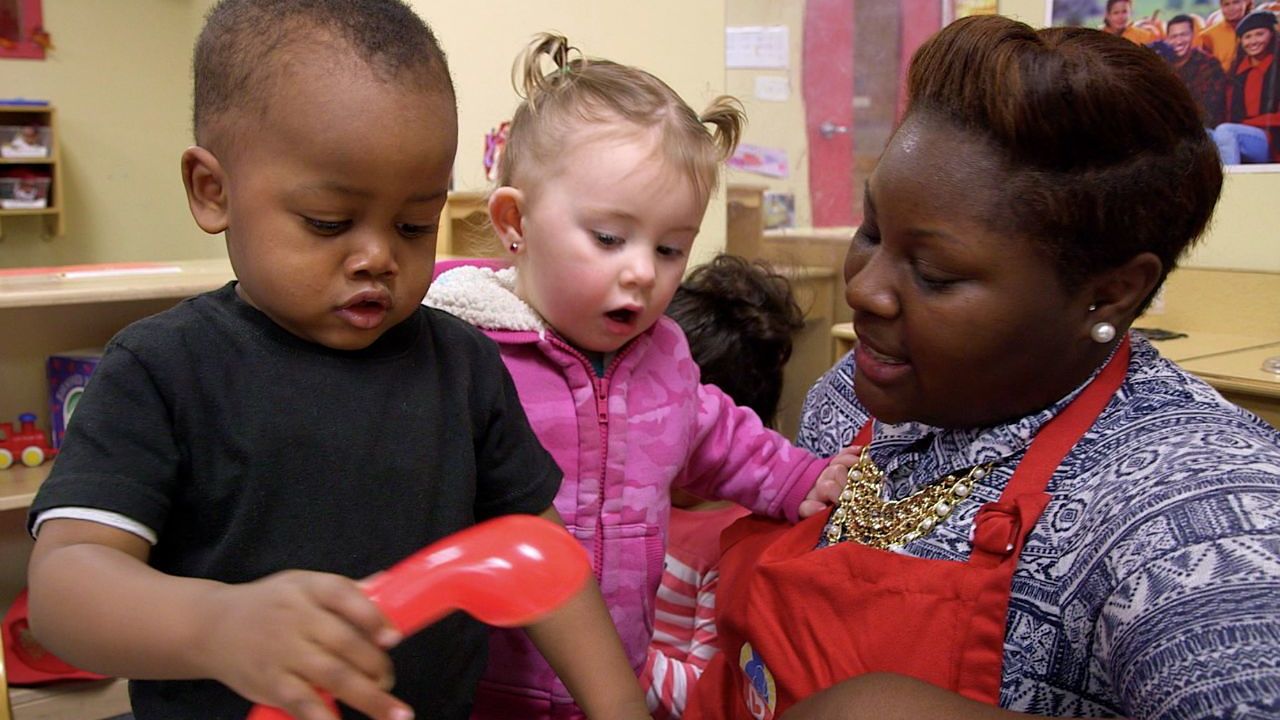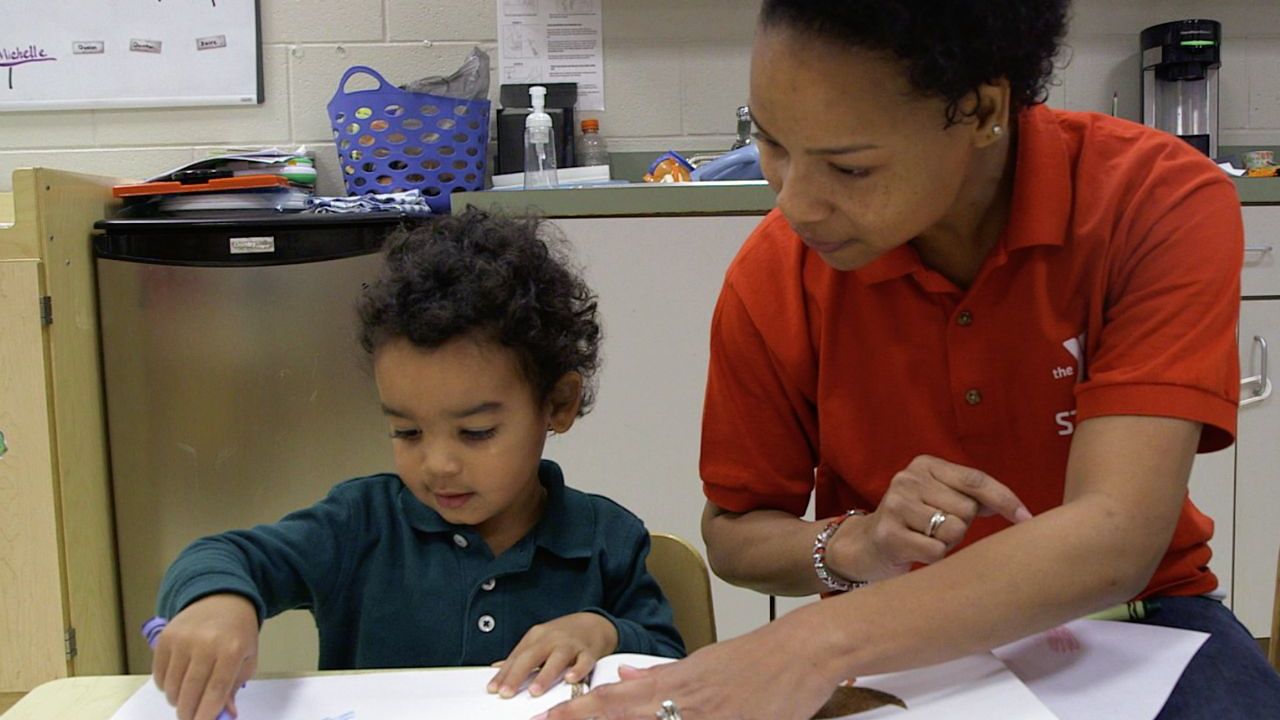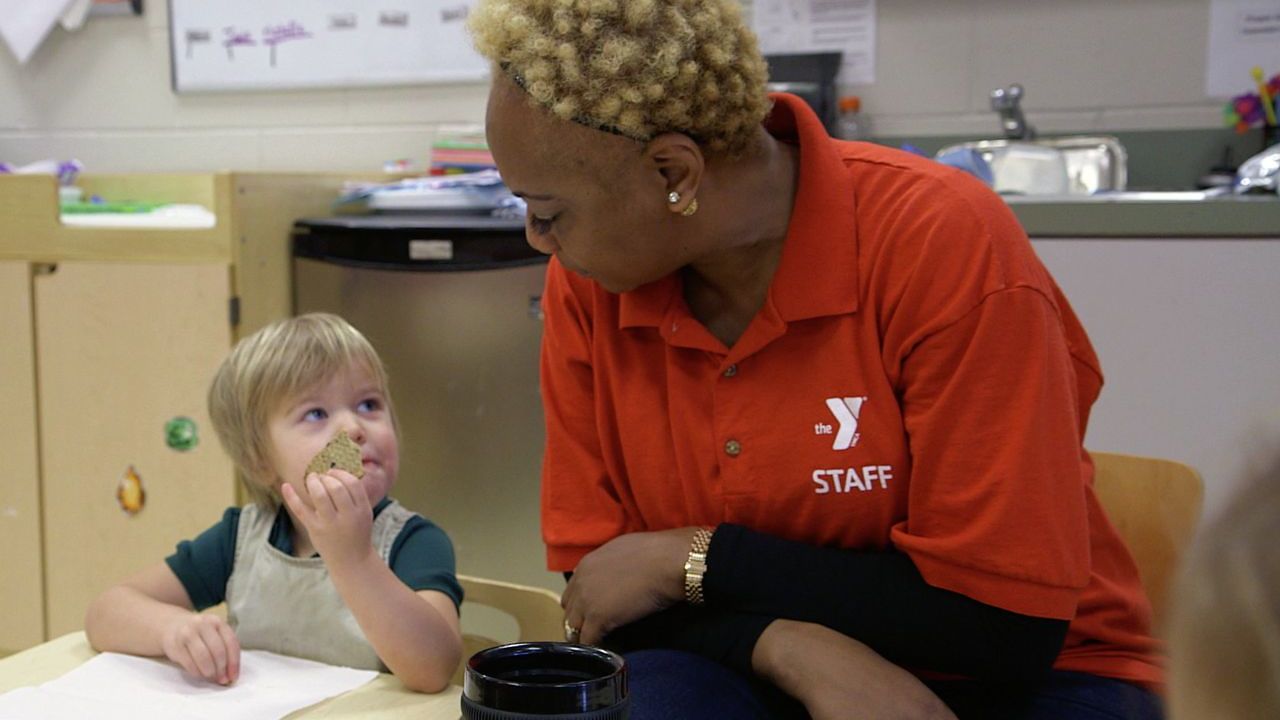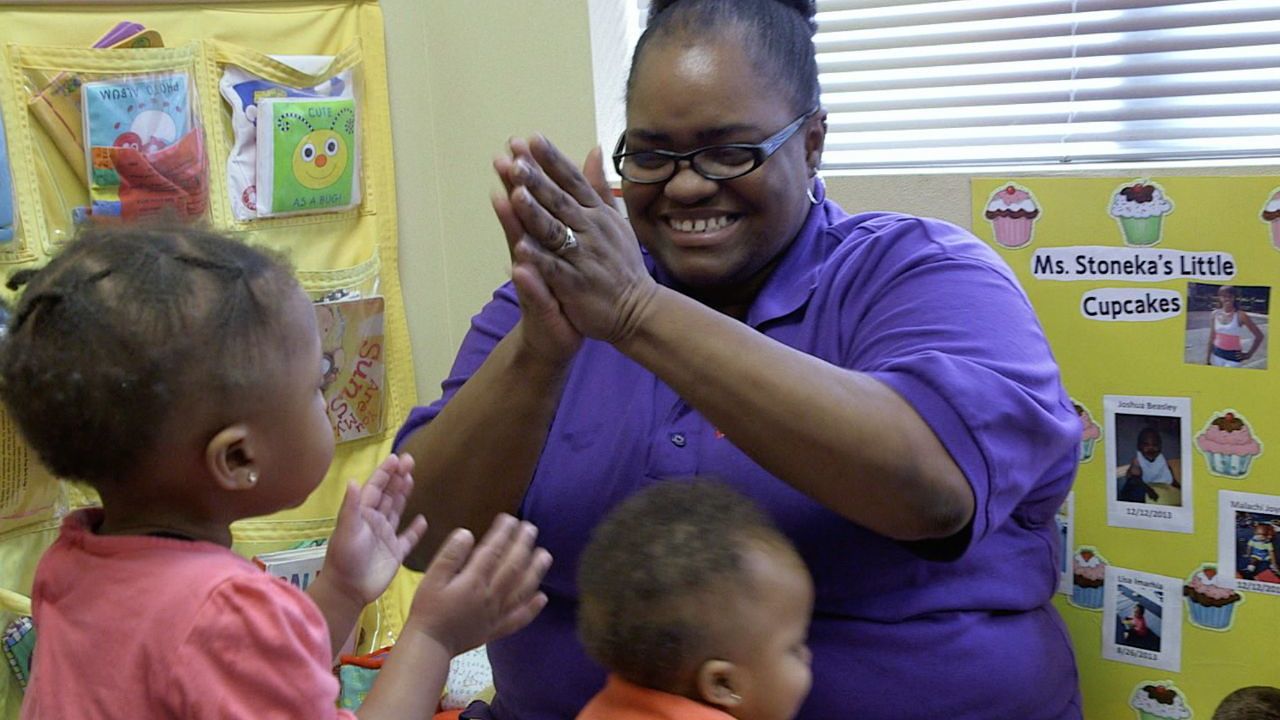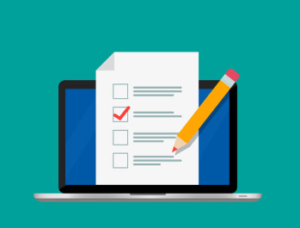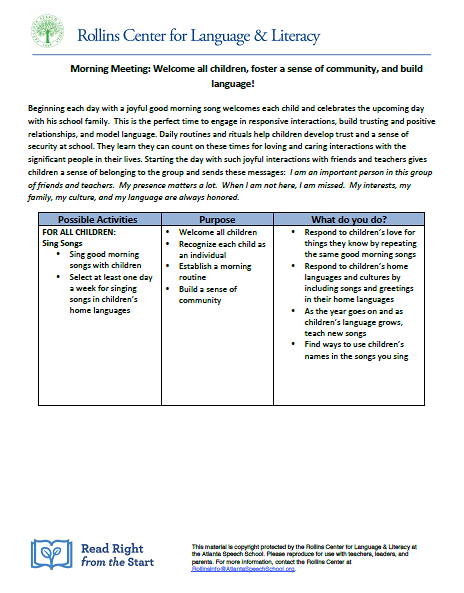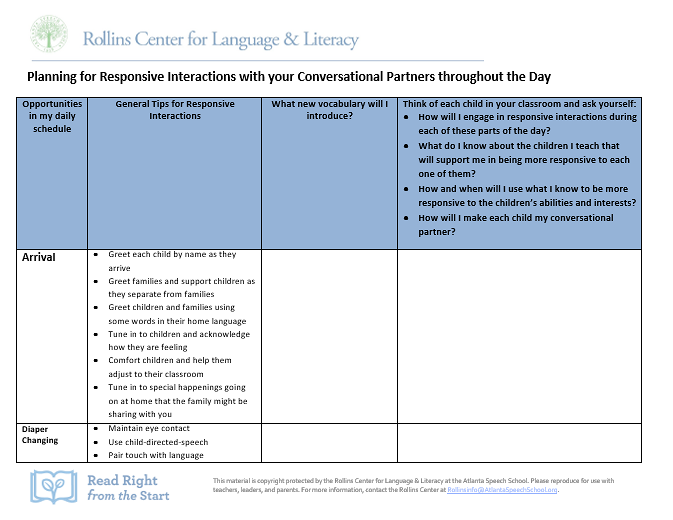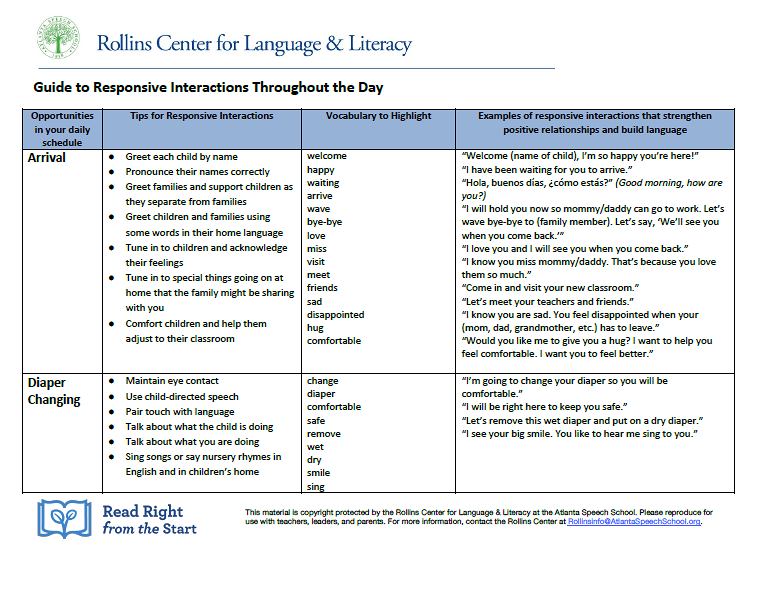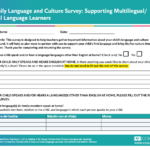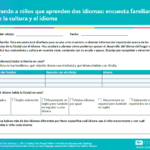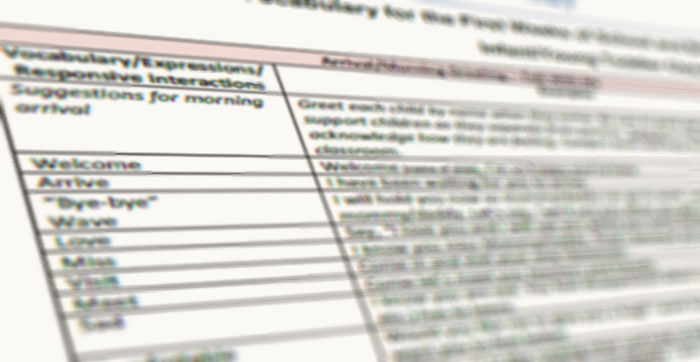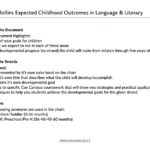Power of Language for Infants and Toddlers
How much of a difference can you make in the life of a child just by talking? A lot! You can help children grow, learn and get ready to read by making the most of every day moments – all by embracing and nurturing the power of language.
- Cost
- 100% Free
- Time to complete
- 2 Hours
- Provides a
- Certificate of Training
-
Teachers of infants and toddlers, including dual language learners
-
Families of infants and toddlers
-
Nonprofit staff and Volunteers
-
Childcare program and site directors
-
Explain the importance of and demonstrate how to build meaningful relationships with infants & toddles
-
Identify the 5 elements of responsive interactions and explain how to apply them when engaging with children
-
Identify ways to support a child’s first language and engage families of dual language learners
-
Strong relationships are the foundation of language development
-
Your responsive interactions with young children support the development of a solid foundation for reading and all learning.
How it Works
-
Learn at Your Own Pace
You don’t have to finish the course all in one sitting. In fact, we recommend you take this course a little bit at a time, incorporating what you’ve learned in the classroom.
-
Earn IACET CEUs
In order to pass and receive IACET CEUs for this course, you will first need to complete all the lessons, then complete the end of course assessment with a score of 80% or higher.
-
Free Guided Resources
As you go through a course, we’ll introduce you to free resources that will help you implement what you’re learning.
-
Never Learn Alone
Have a question on what you’re learning in the course or how to use a resource? Reach out to the Cox Campus community for advice or to lend a helping hand to others.
Lessons
-
Lesson 1
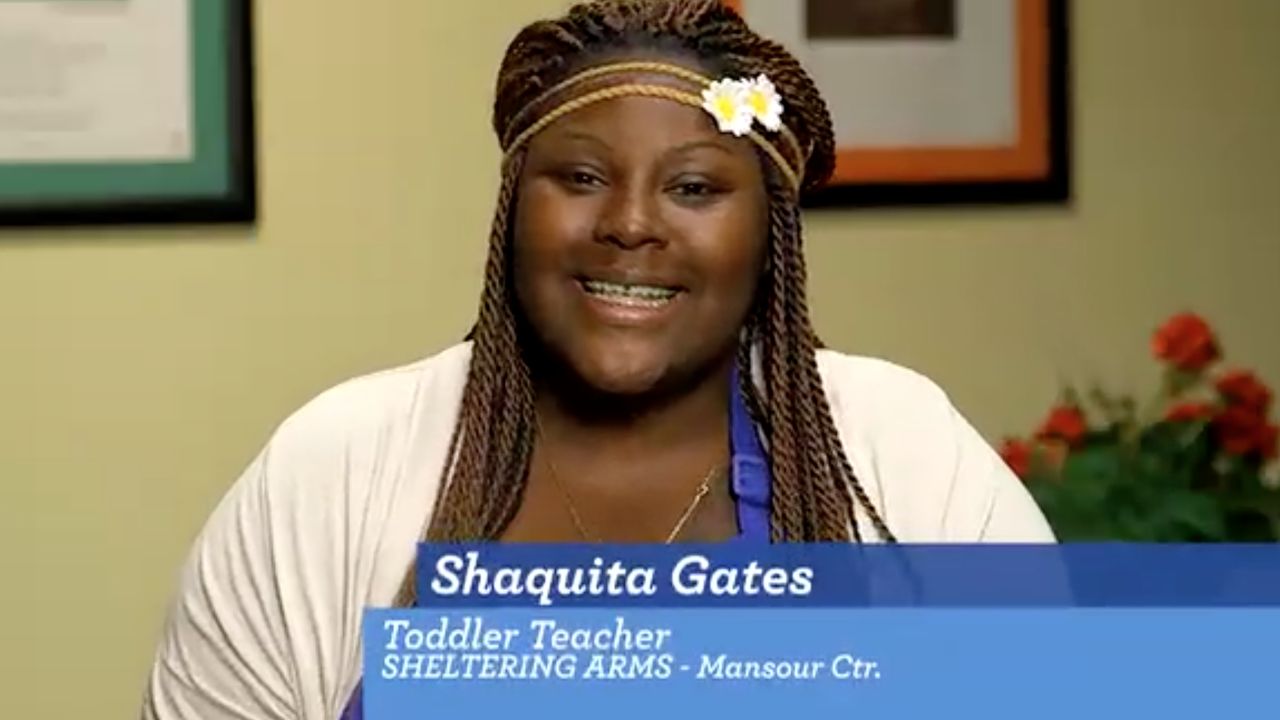
Lesson 1: Welcome to the Power of Language
Duration 8 minutesIn this lesson, you'll meet Shaquita, a Read Right from the Start teacher. You'll also get an overview of what you'll learn in the Power of Language for Infants and Toddlers course. -
Lesson 2
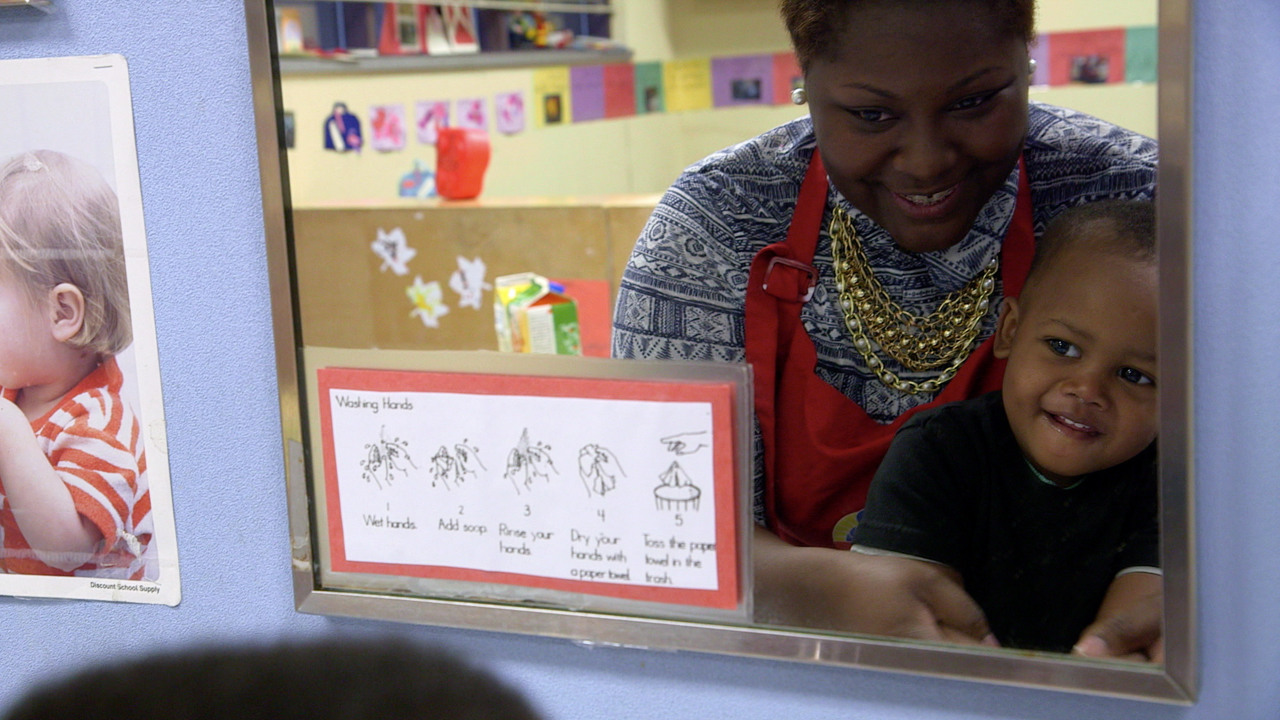
Lesson 2: It's All About Relationships
Duration 12 minutesWhen you finish taking this lesson, you'll be ready tomorrow to build responsive relationships with the infants and toddlers you teach. -
Lesson 3
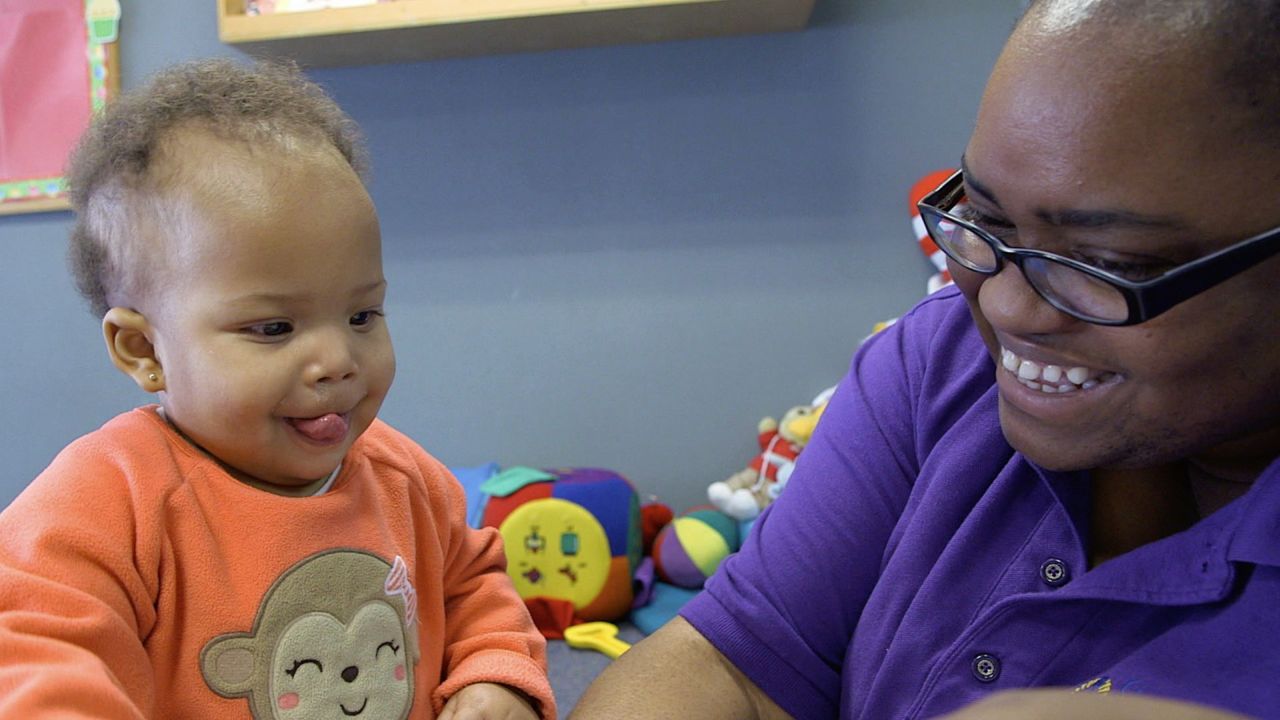
Lesson 3: What are Responsive Interactions?
Duration 14 minutesThis lesson introduces five elements of responsive interactions. When you're done, you will be ready tomorrow to use the five elements in your classroom. -
Lesson 4

Lesson 4: Interacting with Infants Throughout the Day
Duration 15 minutesAfter you finish this lesson, you'll be ready tomorrow to use all five elements of responsive interactions with infants. -
Lesson 5

Lesson 5: Interacting with Young Toddlers Throughout the Day
Duration 22 minutesAfter you finish this lesson, you'll be ready tomorrow to use all five elements of responsive interactions with young toddlers. -
Lesson 6

Lesson 6: Interacting with Older Toddlers Throughout the Day
Duration 21 minutesAfter you finish this lesson, you'll be ready tomorrow to use all five elements of responsive interactions with older toddlers. -
Lesson 7

Lesson 7: Planning for Your Classroom
Duration 18 minutesAfter you finish this lesson, you'll be ready tomorrow to plan for each day in a way that maximizes opportunities for responsive interactions and building language. -
Lesson 8

Lesson 8: Conclusion
Duration 9 minutesIn this lesson, you'll review key takeaways from the Power of Language course and make a commitment to use what you learned in your classroom tomorrow. -
Lesson 9

POL-IT Lesson 9: End of Course Assessment
Duration 16 minutesIn this lesson, you will take the end-of-course assessment. You must score 80% or higher to pass the assessment and receive your certificate of completion.
Your Facilitator

Success Stories
-
"I love the Cox Campus courses because I am able to log on at my convenience and learn a little more information to help me be a better teacher/caregiver and even a better parent."StaceyInfant/Toddler Teacher
-
"I enjoy learning new ways to interact with children and to help them become the best they can be and be able to succeed in life to the fullest."SheriTeacher
-
"I have learned so much to take back to my classroom. I’m using these learning experiences to help strengthen the language of each child and I see a difference each day in the children’s language."DeborahTeacher
FAQs
The Rollins Center, of the Atlanta Speech School, in some cases, may allow an instructor, facilitator, content editor or a subject matter expert or consultant with proprietary interests to conduct professional development activities at Rollins events, provided that appropriate disclosure of such interest is made. Disclosure of proprietary interest will be made on course material and at the beginning of the course/learning event, when applicable.
